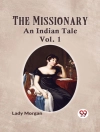‘The Thomas Hardy Reader – Volume I’ is a collection of three of Hardy’s most beloved and celebrated books: ‘Tess of the D’Urbevilles, ‘ ‘The Mayor of Casterbridge’ and ‘The Return of the Native.’
Universally acknowledged as one of the greatest novelists in English literary history, these three books represent Thomas Hardy at his best. In these novels, Hardy explores and expounds upon some of his most familiar themes: love, honor, loss, betrayal and tragic mischance.
Among the most cherished novels ever written, each of these masterpieces is presented here in their original and unabridged format.
Про автора
Thomas Hardy (1840-1928) was an English novelist and poet best known for his dramatic novels set in the west of England in a fictionalized area known as Wessex. Hardy came from humble origins (his father was a stonemason) but he received encouragement in his education from his mother and attended school in Dorchester until he began an apprenticeship at 16, studying to become an architect. Eventually, he would move to London and continue his education at King’s College London and worked on various architectural projects through the 1860’s. But young Hardy had a love of literature and attempted to get an early novel published in as early as 1867. He could not find a publisher and abandoned the book, finally publishing his first two novels anonymously in the early 1870’s. His publications of Far from the Madding Crowd in 1874 finally brought Hardy the success and literary renown he craved and his subsequent books, The Return of the Native (1878), The Mayor of Casterbridge (1886) and especially Tess of the d’Urbevilles (1891) proved to be enormously successful, if controversial because of their themes of class division, sex, religion and marriage. This would come to a head with his publication of Jude the Obscure in 1895, which brought strong condemnation from the conservative Victorian public as well as church officials. The notoriety and negative press surrounding the publication naturally only caused the book to become even more popular. By the 1900’s, Hardy’s financial and literary legacy was secure and he spent the rest of his life devoted almost entirely to writing poetry, including a number of significant war poems inspired by the Boer Wars and World War I. In December of 1927, he became ill with pleurisy and died on January 11, 1928 at his home in Dorchester at the age of 87.












